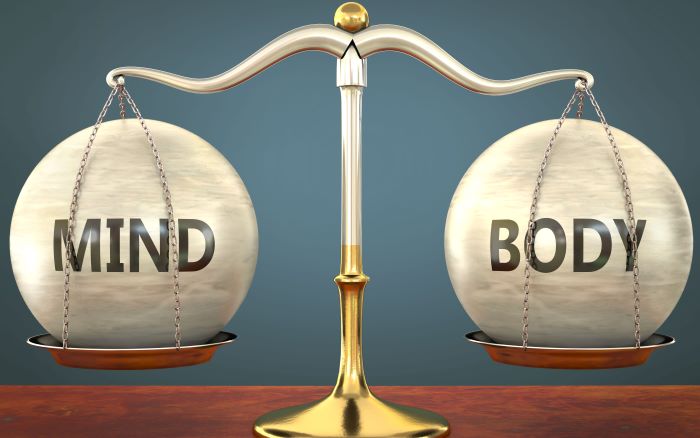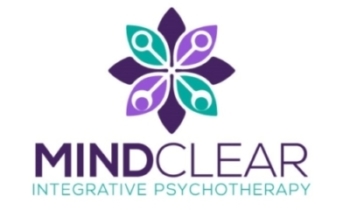Is it the Mind or Body? When it Comes to Trauma, the Answer is Both

The mind-body connection is intuitively recognized even if not always explicitly. Many people today are aware that there is a connection between mental and physical health. If you aren’t sure, you can experience this in real-time the next time you feel a strong emotion and notice how it impacts the body. Think of terms like heartache, hot-headed, or butterflies in the stomach.
The mind-body connection is the link between your thoughts, attitudes, behaviors, and physical health. This connection is one that societies have known for millennia, yet somehow has been looked down upon and ignored in more modern times.
In Western medicine, for example, the concept was thought of as pseudoscience until only recently. Yet, research is growing, making it increasingly evident that the body cannot be separated from the mind and vice versa. This is true even in some severe cases of biological illness.
For instance, in the late 1970s, Professor of Medicine at the University of Massachusetts Medical Center, Jon Kabat-Zinn, used mindfulness techniques he learned from his time in Buddhist monasteries with patients who were thought to have untreatable chronic pain. His research demonstrated a reduction in pain, mood disturbance, and medication use.
About a decade later, director of the Stanford Psychosocial Research Laboratory, David Spiegal, found that breast cancer patients who participated in group mindfulness experienced less pain and lived longer than those who received traditional medical care alone.
In fact, the mind-body connection is becoming so clear that almost half of physicians use placebos in their daily practice as part of treatment! This is said to be due to both the placebo’s psychologically calming effect and also the physiological benefits for certain diseases.
It’s not all just in your head.
Understanding Trauma
Trauma is defined narrowly as the psychological response to a distressing, life-threatening, and/or overwhelming event. To trauma clinicians and researchers, however, it is understood to be far more subjective and complex – in general, it is not so much about the event itself. Rather, it is a response to anything that overwhelms your capacity to cope, both physically and mentally.
Trauma was well studied and recognized in the 19th century, as seen in the writings of Pierre Janet and early Freud. Unfortunately, politics and power struggles over the ensuing decades buried much of this important early work.
In the 1970s, however, trauma once again became recognized more widely. Psychotherapists began recognizing it as it manifest in the psychological health of war veterans. The research that resulted from this led to the inclusion of a new diagnosis of PTSD in the DSM in 1980.
Clinicians also began noticing similar psychological phenomena in survivors of sexual assault. Pioneers like Judith Herman, MD, detailed the complex ways in which interpersonal and relational trauma, including domestic violence and incest, impact the body, relationships, and mind throughout ones life.
Researchers now broadly categorize trauma into two categories, acute versus complex trauma. Acute trauma refers to a single event, such as a car crash. Complex trauma, on the other hand, refers to a series of events, sometimes chronic, such as being in a relationship with an emotionally abusive parent.
Both have a myriad of consequences on the mind and body, beginning with a heightened fight/flight/freeze/fawn response. These are automatic responses meant to help you survive dangerous situations. When prolonged or chronic, however, the effects can be devastating.
Physical and Psychological Responses to Trauma
Psychological responses to trauma can include a loss of hope and meaning, confusion, emotional reactivity, emotional flashbacks, intrusive memories, nightmares, and/or difficulty trusting others.
People tend to experience greater psychological distress and dysfunction the more trauma they are exposed to, although this is not always the case.
Increased exposure to trauma also has an association with higher risk of medical and physiological health conditions. Physiological responses to trauma can include gastrointestinal distress, rapid heartbeat, non-restorative sleep, tremor, and fatigue. Over time, the stress response to trauma can have long-term effects on one’s health, leading to chronic pain, hypertension, high cholesterol, obesity and cardiovascular disease, and autoimmune disease.
Trauma exposure can additionally change the way one experiences, perceives, and processes pain. On the one hand, many people with histories of chronic and complex trauma are numb to pain, so dissociated from their body that they can’t feel mentally or physically. On the other hand, studies also show that trauma can lead to a hypersensitivity to pain that may be linked to chronic pain.
Trauma and Medicine
Trauma research is helping change our understanding of the mind-body connection. This understanding is not always reflected in our healthcare system, however.
Many people with chronic pain feel dismissed by medical and behavioral clinicians alike. Their symptoms may be minimized, and/or they may not believed entirely as to the extent of their suffering.
Individuals whose trauma includes chronic racism, poverty, and/or oppression are likely to fall through the cracks or receive sub-standard treatment both due to systematic problems as well as in reaction to a confusing array of physical problems resulting directly and indirectly from past trauma.
Of course, perceiving that medical professionals cannot and/or will not believe or help a patient can reinforce complex post-traumatic stress such as difficulty trusting others, confusion, self-doubt, hopelessness, and isolation. Further complicating matters, some of these beliefs may lead you to perceive dismissiveness when it’s not there or fear seeing a medical professional altogether, leading you to avoid getting much needed care.
As previously mentioned, this psychological distress can impact both your perceptions and physiological health. If your experience in dealing with the healthcare system exacerbates stress and fear, the irony is that your health, too, will likely suffer.
It is easy to see how a vicious cycle can ensue.
Breaking the Cycle
While the mechanics of how the mind and body influence each other may not be known, for many it likely doesn’t matter. You do not have to play the game of which came first: the physical or psychological; you just have to find what works.
To break the cycle, it is important to first acknowledge and validate your reality. This means learning how to believe and trust yourself, which is easier said than done in the face of complex trauma. It may require both finding a team of medical professionals who are patient-centered, as well as finding psychotherapists who are trauma-informed and can help you learn how to identify, grow, and manage your connection between your mind and your body.
Because the mind-body connection is so strong, you can use a combination of mind and body interventions to help you heal. Certain types of psychotherapy that are especially helpful in this regard include somatic experiencing and mindfulness-based therapies. Additionally, some more standard therapeutic approaches, such as CBT or psychodynamic therapies, may integrate mindfulness and somatic techniques into the overall treatment.
Healing from and treating trauma requires both a mind and body approach. It is clear at this point that the two cannot be separated even if it isn’t understood just how they are technically connected.
Even if a physiological disease is not present that does not mean that the physiological suffering isn’t real! Similarly, emotional suffering is not something you just get over. Sometimes physical problems require psychological interventions and psychological problems require physical interventions.
At the end of the day, it’s important to understand that complex problems tend to have complex solutions.
As for the question of “Is it the mind or body?” Almost always the answer is both.









